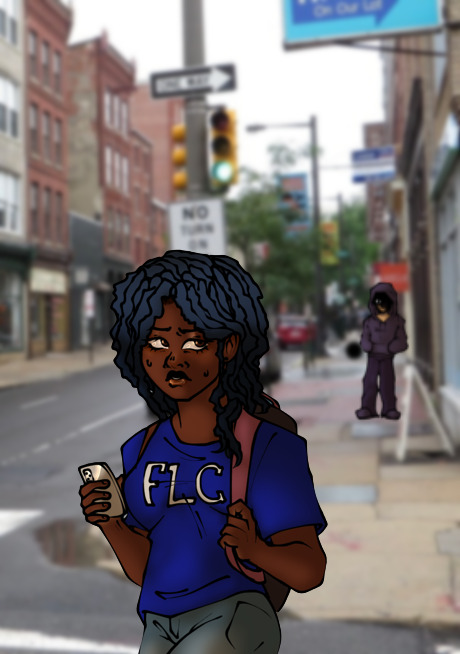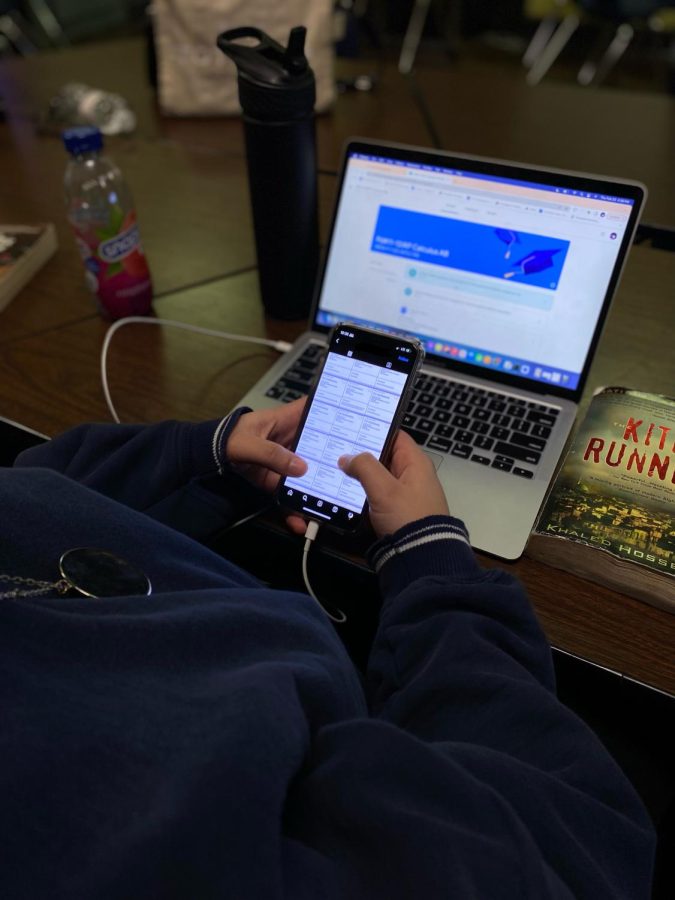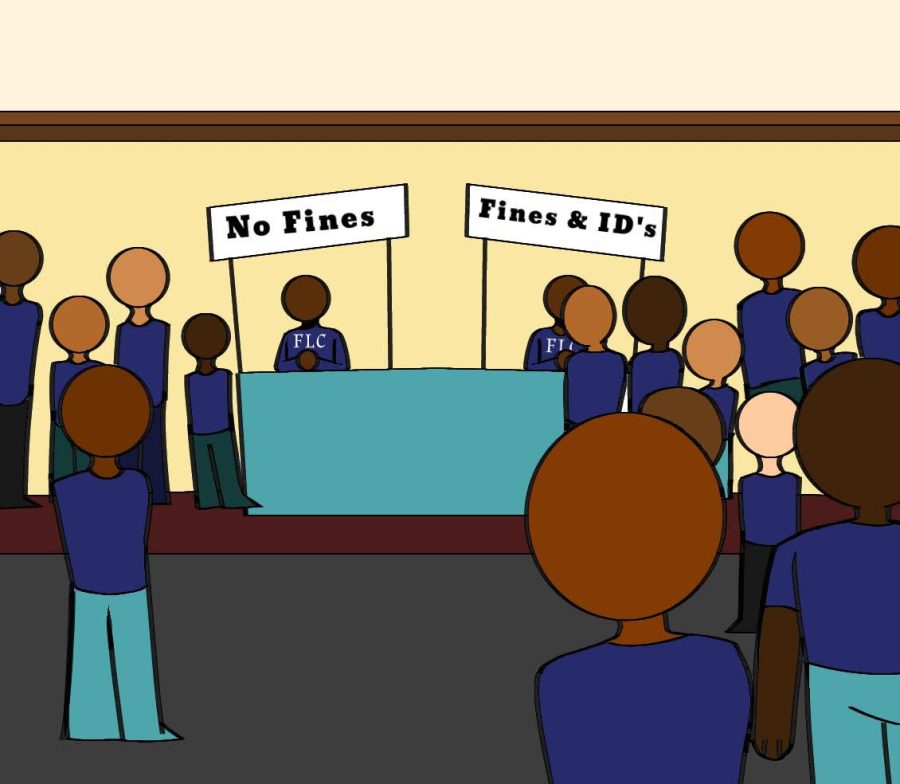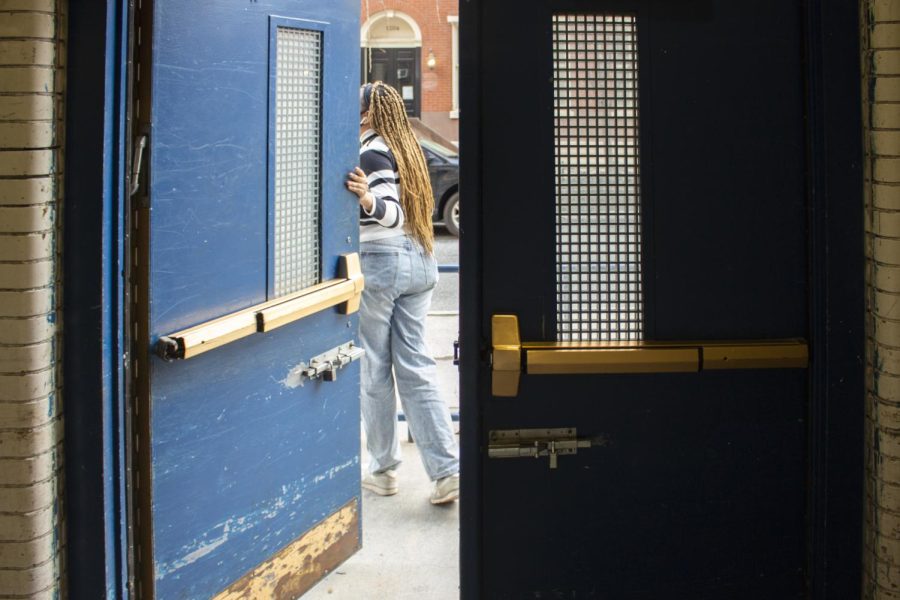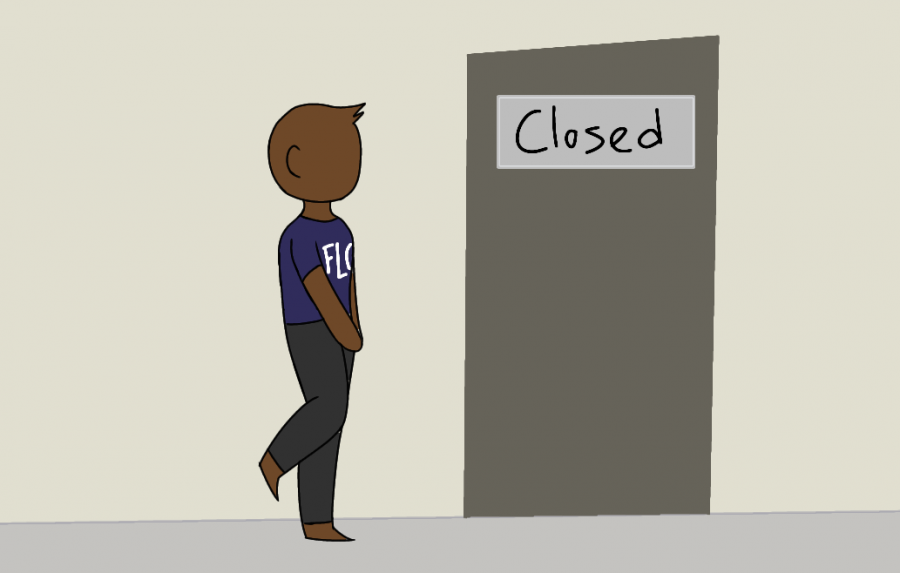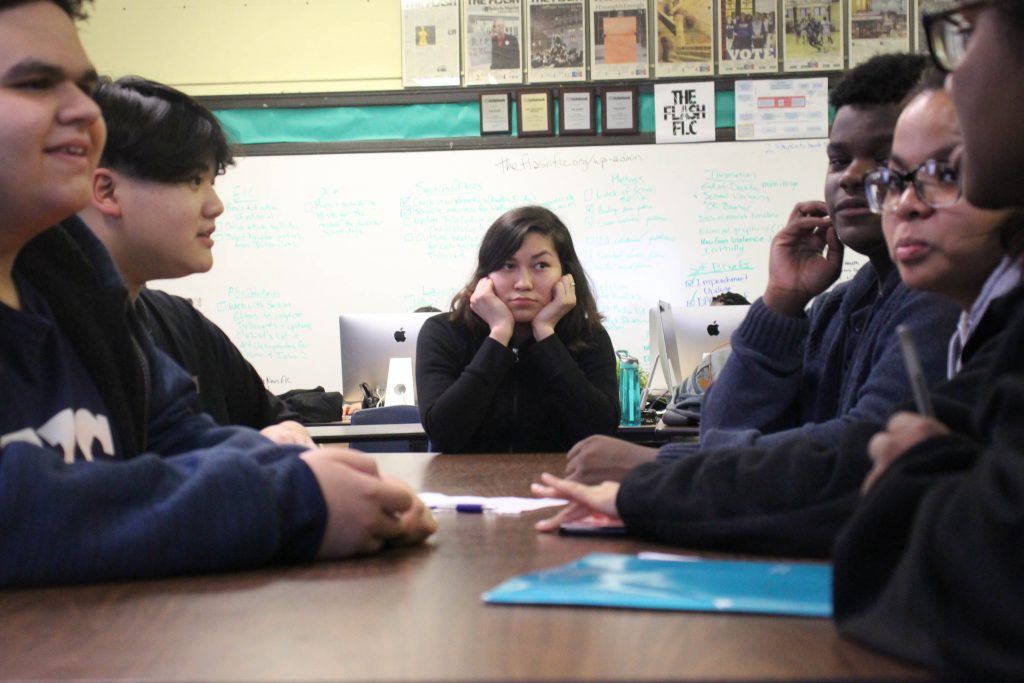In a past article published by The Flash in 2020, which only focused on students in the NLA program–not FLC’s non-native English speaker community as a whole, a number of grievances were addressed. Students reported a lack of available resources, making navigating school a lot harder than it had to be. There are announcements mostly done in English, sometimes featuring French and Spanish speakers, but never enough translations to cater to all 24 languages spoken by our student population. Documents retaining important information are not always made available to those whose families aren’t well-versed in English. Students felt as if they were on the outside looking into the Franklin Learning Center community–unable to properly interact, but observing events happening nonetheless. To understand how students who aren’t fluent in English stay in the loop circa 2023, we asked Ms. Carpenter and Ms. Luebbert, two teachers for the NLA program, their opinion.
Ms. Carpenter has been teaching at FLC for two years, so she’s been witness to most of the school’s improvements when it comes to support for non-native English speakers, especially NLA students.
In response to how NLA students can be kept informed about what’s going on in the school, Ms. Carpenter described her class’ routine when it comes to the school-wide announcements.
“When the announcements come on, we stop what we’re doing and we’re quiet; we listen attentively,” said Ms. Carpenter. “Obviously, it’s English, and so students who are a little more advanced in their English skills can help other students. And I think the teachers can interpret in Spanish. We have several Spanish-speaking teachers in NLA.”
She also mentioned some other systems that are used to make sure those students can always access the news they need.
Ms. Carpenter shared, “What has helped this year is that Mrs. K translates the [announcements], so she shares the notes in French and Spanish. And then those are shared with the counselors, and they post them on the classroom pages…Students often, if they have special interests, will ask me, “Hey, when is basketball?”…So you know, I just let them know it’s not on the notes this week; it’ll be coming. But [the notes are], you know, a little more help in that area.”
Despite the provided help, she also acknowledges that work can still be done.
“I think we really need to grow as a school community to make sure that our students all have all the information they need,” Ms. Carpenter said.
The translated notes do help, but it does place a level of responsibility onto the non-native English speakers that others do not have. They have to busy themselves with the tedious task of staying on top of each notification. Students who are fluent in English have the privilege of being automatically notified.
Ms. Luebbert, the other NLA teacher that we interviewed, has taught here for 7 years. When asked if she thought the support for her students was adequate, she responded positively.
“Speaking from an NLA standpoint, I think those students do receive a lot of support because they get their core classes as sheltered classes…So that way, they’re not kind of being forgotten. They’re being supported… I think in the NLA and in terms of academics, they definitely receive a lot of support in the sheltered classrooms,” said Ms. Luebbert.
She ended her thought with one that seems to be common among those we interviewed.
“I think as a school I think there’s always room for improvement.”
We reached out to the administration for a comment, but unfortunately, we were not able to get together for an interview in time.
The NLA aren’t the only students with less experience speaking English. Throughout the entirety of FLC, there are students who speak English as a second language.
Veronica Zamora-Ramirez, a medical major in FLC, feels that the school is accommodating for the students whose first language isn’t English.
When questioned about feeling disconnected from her peers due to the languages she speaks, Zamora-Ramirez said she felt that she “was more welcomed since others spoke the same language.”
Within the school, Zamora-Ramirez feels that there’s a community built between students who share a first language. She feels that she is able to socialize with those outside of this community, but is able to find comfort within it as well.
“I think it’s amusing to embrace both languages.” Zamora-Ramirez said, “I believe being bilingual allows [you] to create a connection with others in ways that are extraordinary.”
Ms. Carpenter and Ms. Luebbert both mentioned in their interviews that there are resources so students who speak foreign languages feel welcomed and supported. However, what additional steps can students take to ensure that these students feel more comfortable and secure? One of the most common forms of communication is body language. When approaching them, body language will be the main focus.
Have a bright expression and present yourself as someone friendly, so the students can feel more comfortable and willing to communicate. Remember to not talk down to them. There is only a language barrier, not an intellectual barrier. Treating peers that way would not make them more open to talking.
“You can feel welcomed by someone’s facial expression,” explained Ms. Carpenter.
As the FLC community, students should always remember that it’s important to express positive emotions when attempting to communicate with them. By conveying positive energy, non-native English students can feel more confident and supported.
Even though there are teachers who are available to translate announcements and events, there are still steps FLC needs to take when it comes to accommodating non-native English speakers. And despite this barrier, and the struggles that are presented for non-native students, it is always important to remember that we’re all a community. Every FLC student should be able to fully flourish academically and socially, regardless of the languages that they speak.


